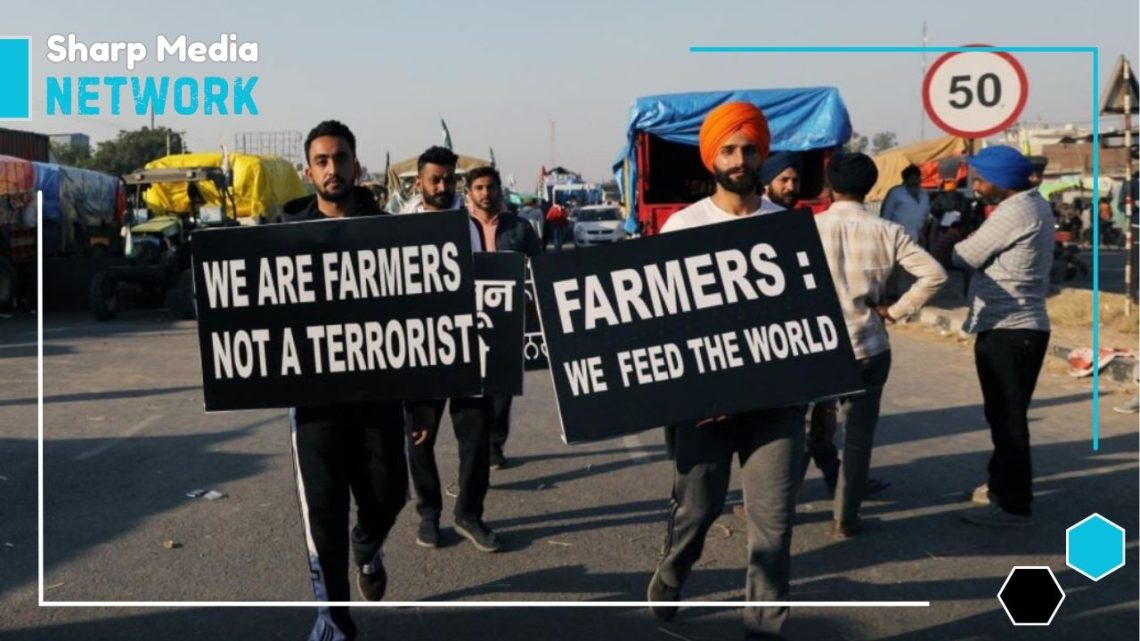
India’s Farmers Fight for Survival Amid 42,000 Suicides and Protests
December 23, 2024In Punjab, demonstrators disrupted rail services under the “Rail Roko” (Stop the Trains) campaign, warning of a statewide lockdown if their grievances were not addressed by 30 December.
Each year on 23 December, India observes National Farmers Day, or Kisan Diwas, in honor of Chaudhary Charan Singh, the nation’s fifth Prime Minister and an advocate for farmers’ rights. However, for many farmers, the day serves as a somber reminder of their ongoing struggles. Since 2019, Indian farmers have faced immense challenges due to the Farmers’ Amendment Bill introduced by the Modi government. These challenges have contributed to a deepening agrarian crisis, exacerbated by systemic issues and policy missteps.
The Agrarian Crisis: A Snapshot
Between 2019 and 2022, an alarming 42,000 farmers died by suicide, according to the National Crime Records Bureau (NCRB). The root causes of this crisis include inadequate storage facilities, inefficient procurement systems, insufficient Minimum Support Prices (MSP), and limited access to fertilizers. These issues are compounded by the government’s perceived failure to address the supply-demand gap in agriculture and an apparent insensitivity to farmers’ demands. Many underprivileged farmers struggle to secure fair prices for their produce, leading to widespread discontent.
The 2020 Agricultural Laws and Their Fallout
In September 2020, the Modi government introduced three controversial agricultural laws aimed at deregulating the sector. These laws allowed farmers to sell produce outside government-regulated markets and enter into private contracts. While proponents claimed the reforms would empower farmers, critics argued that they threatened the MSP system and left small-scale farmers vulnerable to exploitation by large corporations.
The legislation triggered massive protests, particularly in Punjab and Haryana. In November 2020, thousands of farmers marched towards Delhi but were denied entry, prompting the establishment of sprawling protest camps at the Singhu, Tikri, and Ghazipur borders. On 26 January 2021, a tractor rally in Delhi turned violent, drawing national and international attention. Despite government offers to suspend the laws for 18 months, farmers remained steadfast in their opposition.
A Partial Victory and Lingering Demands
Under mounting pressure, Prime Minister Narendra Modi announced the repeal of the three farm laws on 19 November 2021, with the Farm Laws Repeal Bill passing on 29 November.
While this marked a significant victory, farmers continued to demand a legal guarantee for MSP and additional protections to address longstanding grievances.
Renewed Protests Highlight Unresolved Issues
In 2024, farmers reignited protests, focusing on demands for guaranteed crop prices and other support measures. In Punjab, demonstrators disrupted rail services under the “Rail Roko” (Stop the Trains) campaign, warning of a statewide lockdown if their grievances were not addressed by 30 December.
The protests underscore persistent challenges within India’s agricultural sector and the socio-political landscape’s increasing complexity.
A Call for Systemic Change
Observers argue that the Modi government’s broader policies, aimed at reshaping India into a “Hindu Rashtra,” have sidelined marginalized communities, including farmers. As agriculture remains central to India’s economy and identity, the current unrest signals a critical moment for systemic reform. Farmers and other underprivileged groups are mobilizing to challenge prevailing narratives, advocating for meaningful change to secure their futures. The road ahead demands empathetic governance and structural solutions to ensure the well-being of India’s farming community.

